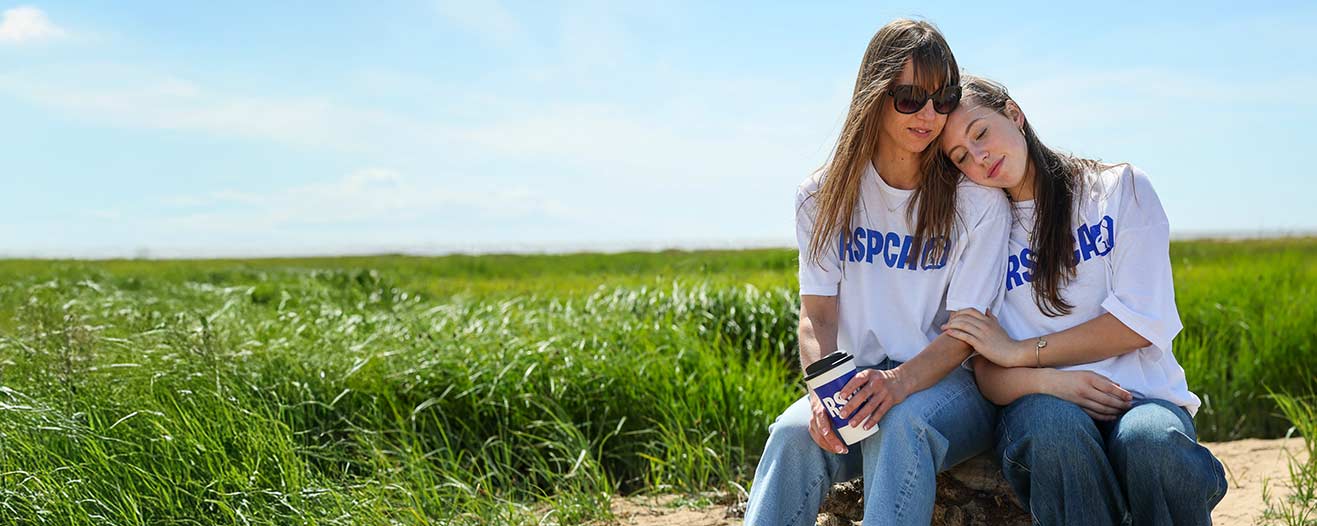How to cope with the loss of a pet
The pain of pet loss can take you by surprise. For many, the grief can hit just as hard as losing a person – and it’s absolutely valid. This page offers expert guidance, emotional support and simple coping tools to help you through, one step at a time.
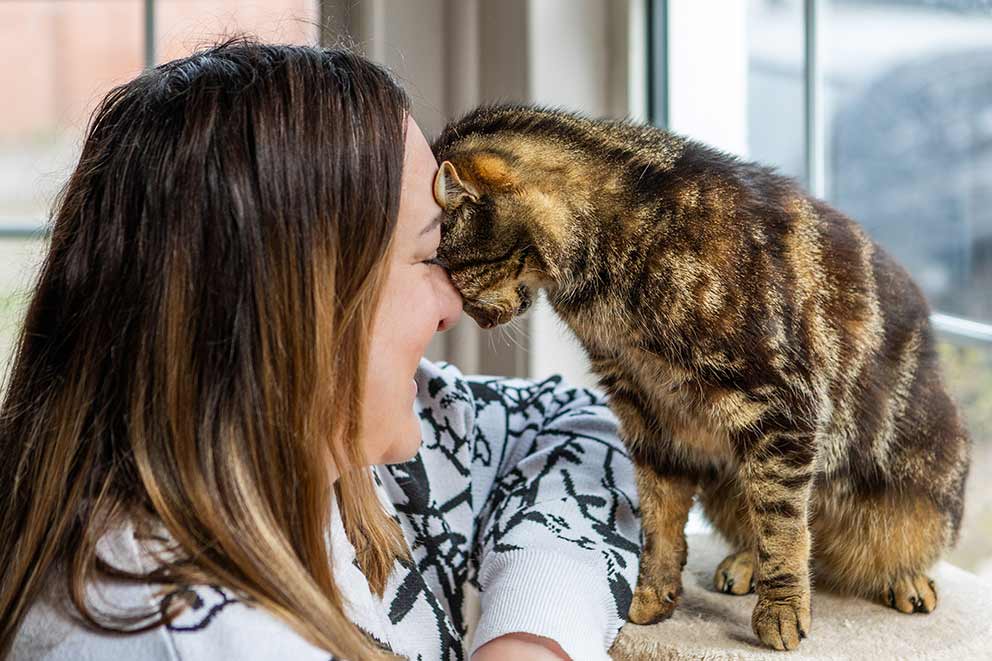
Page contents
Is it normal to feel this bad when grieving a pet?
Yes, absolutely. “Pets are often our constant companions, our daily routine, our emotional anchors,” says Pet Bereavement Therapist, Andy Hawkins. “That makes their absence deeply disorienting.” He explains why losing a pet can bring up a range of complex emotions:
- Lack of recognition – society doesn’t always take it seriously.
- Sole responsibility – we’re usually their only caregiver, which can make us feel guilt.
- A unique bond – pets often give us what we value most in relationships: empathy, trust and unconditional love.
- Sudden or unresolved loss – like an accident or a pet going missing.
- Anticipatory grief – the anxiety of knowing it’s coming, but not when.
When my dog died it was like the whole universe stopped and the bottom dropped out of my world.
67%
of pet owners are shocked by intensity of grief*
94%
felt truly heartbroken*
3 in 4
lost daily routine or focus*
What are the different stages of pet loss grief?
You might have heard of the five stages of grief – denial, anger, bargaining, depression, and acceptance. But real grief is rarely that tidy.
Grief doesn’t follow a straight line. Instead, we often move back and forth between intense feelings and everyday functioning – a pattern known as the ‘dual process model’. One day you might feel numb or heartbroken, the next distracted by daily tasks, then back in the thick of sadness again.
There’s no right way to grieve. What matters is finding small ways to cope, stay connected, and be kind to yourself along the way.
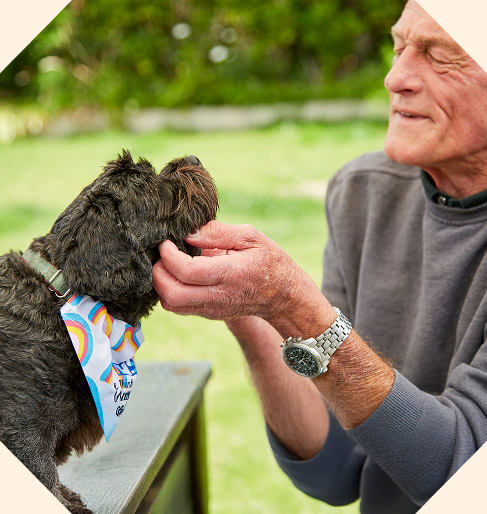
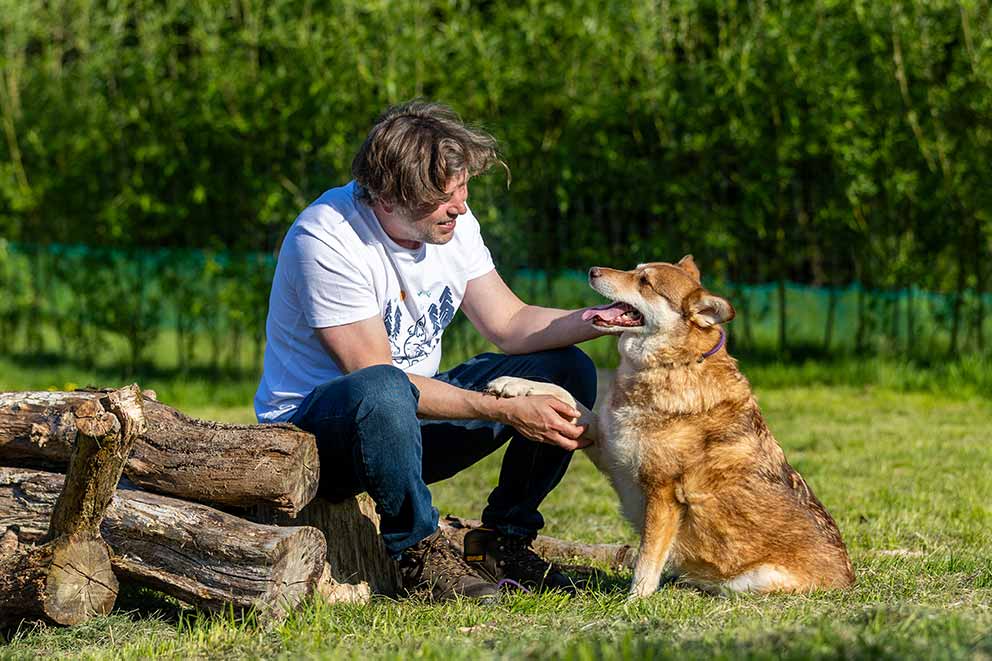
Grief is more like a tide than a timeline. It ebbs and flows - and that’s normal.
What is anticipatory grief?
Anticipatory grief is the sadness and anxiety we feel when we know a loss is coming, like when our pet is getting older or unwell. It’s a natural response to the bond we share, but it can sometimes creep in too early, pulling us away from the time we still have together.
Try to stay present – simple routines, play, and affection can help you feel grounded and make the most of each moment.
If you’re preparing for loss, you may find our Saying goodbye guide helpful.
Coping with pet loss, one day at a time
Grief doesn’t just disappear. But over time, we learn to carry it in a way that feels more manageable – and meaningful. Many people find comfort in small routines and acts of self-kindness. You could try:
- Keeping up familiar routines, where you can.
- Making time for small, enjoyable moments each day.
- Using grounding tools like the ‘3-2-1’ technique to help bring you back to the present – name three things you can see, two things you can touch, and one thing you can hear.
- Trying new activities that don’t stir painful memories.
- Creating memory boxes, journaling or taking a walk in honour of your pet.
If grief feels overwhelming, speaking to a professional can really help. You’re not alone.
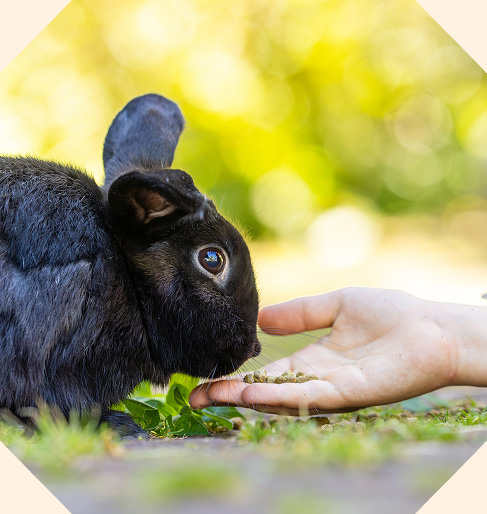
Can you take time off work when your pet dies?
Many pet owners told us they struggled to function at work. “I wasn’t allowed time off when my dog died,” said one person. “I had to pretend I was ill. I couldn’t face work. She was my best friend.” Another shared: “I didn’t expect to feel so physically floored – I couldn’t focus, I couldn’t eat, I just cried at my desk.”
While pet bereavement leave isn’t widely offered, we suggest you talk to your manager or HR team about what you’re going through. “You don’t have to pretend everything’s fine,” says Andy. “We’d love to see more workplaces recognising this kind of grief.”
How to talk about pet loss
Grief can be hard to put into words, especially when it feels like others might not understand.
“If you're finding it hard to express how you're feeling, try the ‘Fact – Feel – Want’ method,” advises Andy. “Speak honestly and ask for what you need.
“My pet died – I feel heartbroken – I’d appreciate a little space and time to process this.”
This approach can be especially helpful at work or with people who might not know what to say. It helps them understand, without putting pressure on you to go into detail.
Services like the Blue Cross Pet Loss Support Helpline are free and confidential, and can be a lifeline when you’re feeling isolated.
Speak honestly and ask for what you need. And if you’re a friend or manager, just listen. Be present. Don’t minimise it.
When will you feel better?
There’s no rule for how long grief lasts. Healing means learning to live alongside your loss. Over time the pain may soften and you’ll be able to enjoy yourself without guilt. These are signs of healthy adjustment. “You don’t get over it – you grow around it,” says Andy. “And that takes time. Be patient with yourself.”
Pet grief support
How to remember your pet
Finding ways to remember your pet can be healing. Small, meaningful acts help to keep the bond alive – and offer comfort on even the hardest days.
Here are some ways to honour your pet’s memory.
Journal your personal memories
“Write down all their funny little quirks,” says one owner in our Pet Grief survey. “One day you’ll be glad you did.”
Create a memory wall
“I’ve filled my hall with pictures of my pet,” says another owner. “And I always say hello to them.”
Talk to them
Many people find peace in speaking their pet’s name aloud. “It’s not silly,” says pet bereavement therapist Andy. “It’s a way of keeping their memory alive.”
Visit a favourite place
Spend time in the quiet corners where they used to doze and return to walking routes you enjoyed together. Feel their presence linger.
Choose to keepsake
Plant a tree or flower, or keep a pawprint or ashes in a special place. These tangible reminders can be comforting.
Support a cause in their name
Donate to a cause they remind you of or volunteer your time.
When should you get another pet?
There’s no timeline for grief. Some people wait years to get a new pet, others get one much sooner. Think about your emotions, your lifestyle and any other pets you have. If you do feel ready, consider giving a home to a rescue animal. Every adoption gives an animal in need a second chance at happiness.
*Based on the results of the RSPCA Pet Grief Survey 2025

